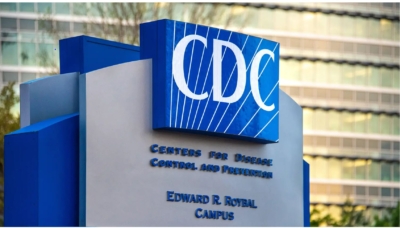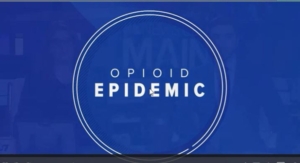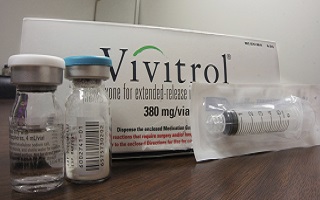
About a year ago, Heather Walker-McConihe had just been released from jail, having served a sentence for a probation violation after relapsing in her long struggle with opiate abuse. Heather Walker-McConihe got a new job recently through a job fair program aimed at people recovering from substance abuse.
Staff photo by Shawn Patrick Ouellette
SOUTHERN MAINE RECOVERY WORKFORCE INITIATIVE
WHAT: Job fair for people in recovery
WHO: 25 employers seeking new hires
WHERE: Portland Expo, Park Avenue
WHEN: Thursday, Oct. 11, 8 a.m. to 4 p.m.
.
Employers tap Mainers in recovery for jobs
A labor crunch plus the need for jobs for people recovering from addictions prompts hiring fairs.
She was working the night shift at McDonald’s for minimum wage, worried she was stuck in an unrewarding, dead-end job as she tried to stay clean. Walker-McConihe, 33, has convictions for robbery and burglary and she’s been in and out of jail. She’s wrangled with opioid addiction for about a decade, first to pain pills prescribed after a back injury before graduating to heroin. With that background, she doubted any career opportunities were open to her. “I just didn’t really feel like I was going to get a job, so why bother?” Walker-McConihe said. “I had no confidence at all.”
She still works the night shift, but these days it is in a job she loves and a place where she can advance. Walker-McConihe found her new position, as a personal care coordinator at Crossroads, a substance abuse and behavioral health agency in southern Maine, at a June job fair in Biddeford specifically targeting Mainers recovering from substance abuse. A similar job fair is planned Thursday as employers try to fill stubborn vacancies with people who need jobs as part of their recovery.
“When you have a job you love, you don’t have the temptation to fall back into those bad habits,” Walker-McConihe said. “The goal of recovery is not to be sober, it is to create a life where being sober is easy.”
The job fair program, called Southern Maine Recovery Workforce Initiative, will have at least 25 employers, including The Home Depot and Tyson Foods, parent of Barber Foods. The fair will run from 8 a.m. to 4 p.m. at the Portland Expo on Park Avenue. It will include resume and interview workshops for job seekers and a closet of donated business-casual clothes.
“What we are trying to do is get the community to understand that they have a role in sustaining the stability of people in recovery,” said Tim Cheney, the founder and CEO of ENSO Recovery, an outpatient substance abuse treatment agency with offices in Portland, Westbrook and Sanford that helped organize the fair.Steady, rewarding employment is crucial for people in recovery to keep sober and get back to normal life, but landing those jobs can be hard, Cheney said. Often, those grappling with substance abuse have gaps in their employment history and a criminal record, instant red flags or disqualification for many employers. Magnifying those challenges is a persistent negative perception of people who have struggled with drug addiction.
“There is definite discrimination,” Cheney said. “It is not just stigma, it is discrimination. People are going to have to stop looking at this as a moral and criminal issue.”
This is his second job fair, but Cheney wants to put on more across the state and is developing a job website specifically tailored for people in recovery.
REGAINING LIFE
In the past five years, a substance abuse crisis driven by cheap heroin has killed hundreds of Mainers, ruined thousands of lives and overwhelmed the state’s treatment resources.
After treatment, though, people are still at risk if they can’t find a place to live and a way to earn a living. That’s what makes the job fair so important, said Michael Sauschuck, Portland assistant city manager and former police chief. The city is a sponsor of the fair and provided the Expo as a venue.“The outcome of this disease in many cases is you lose your job, you lose a focus, you lose a home, your loved ones,” Sauschuck said. “This process provides an opportunity to regain all those things.”
Employers hungry for scarce talent in the state’s tight job market seem increasingly willing to overlook past drug abuse and criminal convictions. The Maine Department of Health and Human Services in 2015 estimated that 15,500 Mainers sought treatment for opioid addiction, a largely untapped labor pool.
One of Hyperlite Mountain Gear’s most promising new employees is in recovery, said Mike St. Pierre, CEO of the outdoor equipment manufacturer. The employee was referred to Hyperlite after the last job fair and has already moved from assembly to sewing at the company’s Biddeford production center.
“We’re really happy with it,” St. Pierre said. “We are loving the opportunity, and this person is working out really well for us.” St. Pierre plans to follow up with a few recommendations for other people in recovery who can’t find jobs or move up because of past issues.
“If they are willing to work and are good workers, we are willing to support them,” St. Pierre said. If the company keeps recruiting recovering addicts, St. Pierre expects one or two won’t work out, but he’s willing to give anyone a chance.
“Just because someone has a criminal background doesn’t mean they are a bad person,” St. Pierre said. “People have made some bad decisions in life, but they have untapped potential.”
But sometimes there are obstacles. Derek Shenk, a recruiter for Port Resources, a South Portland-based nonprofit that provides residential services for people with developmental and behavioral health issues, finds that people in substance abuse recovery have an empathetic connection to the group’s clients.
“Our clients don’t want to be looked at as disabled people, the same thing as people in recovery” don’t want to be seen only as addicts, Schenk said. “Part of the recovery process is giving back. There is a lot of compassion and empathy in this population that fits perfectly with our clients.”
However, since the company uses federal funding, it can’t hire anyone convicted of a felony or operating under the influence in the last three years. Potential employees also have to pass a Department of Health and Human Services background check for child endangerment.
A few people interviewed at Port Resources after the job fair in Biddeford, but the company couldn’t hire them because of those issues, Schenk said. It was disappointing, but he plans to come to next week’s fair and try again.
“Not everyone in recovery has those marks on their record,” he said.







Leave A Comment